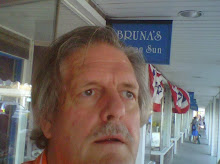CHAPTER 1
Winston Appleby’s Tale
Winston sat in the chair he called the perch. It was a bitterly cold February night in the Western Mountains of Maine. The sky was brilliant and clear. The near-absolute darkness at night allowed him to look out at what seemed to be the entire universe. He looked around WiredWalden as he called his home with a degree of satisfaction. He had built this house smack in the middle of the wilderness. His house was a source of pride. Back in the early 1980s, he had come upon this unique swatch of property. 6,000 acres of land in really rural Maine. It was bordered on the top by the Appalachian Trail and stretched down the mountain to Connolly Lake. There had been 3 houses and 5 camps on the property in varying stages of repair. The only way in or out was an old logging trail and two steel bridges across a river and a stream. Once Winston locked the gates on his bridges he was completely isolated and alone. He felt free on his small piece of what he called ‘Free America’. A name he found increasingly ironic. It was near-pristine forest and he enjoyed the fact that over time he had built a home with all the comforts of civilisation without all those damn annoying people. The nearest phone and electric poles were 11 miles away. His Neighbour was almost 20 miles away. He had learned in his trade the various emerging energy technologies while setting up remote outposts in Africa, Southern Asia, and Latin America. He had combined these technologies, wind, solar, thermal, and hydro, and created his own power system for his home. He developed a method of composting not only organic materials but turned discarded cans and bottles into energy – a simple process that involved a naturally occurring chemical reaction. His home was warm in the winter cool in the summer, even those few August days where the humidity and heat made even the mountain air uncomfortable. He built computer chips into the roof. The settling of the house on the foundation provided enough movement to power the connected chips into a self-powered computer which managed all aspects of the heating-cooling for WiredWalden. He had an endless source of water from two deep wells and a glacier-fed stream. There were vegetable gardens at each one of his places, and at his home, he also had a sizable herb garden. He bought meat from two nearby organic farmers. Fresh milk and cream from another who also supplied eggs and poultry. He had a surprisingly well-stocked wine cave partially carved out of the mountain which provided a nearly year-round stable temperature inside. The only visible sign from afar that there was any kind of dwelling was the 80-foot high solar array. Winston had taken great care in designing it that it be aesthetically appealing as well as optimised for maximum capture in a year-round environment. The various components of WiredWalden’s sources of energy were efficiently managed and excess power was sent to a series of three banks of storage batteries. Two were set up to act in case of unforeseen disaster if components of his power were affected by wear or weather. The third banks of batteries were a collection of portable power units that could be taken up or down the mountain when he went to his 3 camps and two houses. He had not yet gotten around to providing them with more than basic solar power. He now doubted he would ever get around to providing them individually with their own power. The solar provided enough energy to heat the water and assist the gravity pumps that brought spring water in and wastewater out. For his purposes or if he had guests that stayed for a longer period he would simply bring in his surplus batteries. It all worked now. It had taken a good deal of trial and error and some fairly unpleasant experiences, but over time he learned to compensate and eventually fine-tuned his systems. He had set up multiple satellite links to provide his ultra-high-speed internet connection. He had full video, TV, radio, and telecommunication capability. Guests from New York and Washington would marvel that they had the power they were used to and the conveniences they found essential but no poles or wires. It was from this observation, that Winston first called his home WiredWalden. A not so clever play on Walden Pond - Thoreau’s rustic ideal. The entrance to the Main House had a place with his favourite Thoreau quote on a plaque above the inside door: A man is rich in proportion to the number of things he can afford to let alone. Winston was justifiably proud of his home in the wilderness. The attention the detail and his painstaking refusal to settle for less or compromise had resulted in a comfortable and eminently liveable place that was architecturally near perfect and was pleasing to the eye, beautiful in fact. It did not intrude on the natural beauty; it looked it belonged. The sign of good design and thoughtful placement. The last mile and a half of the entrance road were carved from a forest of spruce and tall pine. It was almost magical. A quarter-mile from the Main House, it passed through an abundant apple orchard. In short, it was an ideal spot with a view of the surrounding mountains that was breathtaking during the day. And at night was Winston’s window on the universe. It was Winston’s home. He was very much at home in it. As Winston surveyed his private world and admired some of the endless small and clever aspects of contrasting woods, colours art, and design, he began to think of the world beyond his domain.
Subscribe to:
Post Comments (Atom)





No comments:
Post a Comment